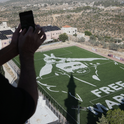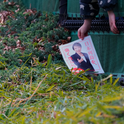Henry Kissinger, the former National Security Advisor and Secretary of State under Presidents Richard Nixon and Gerald Ford, has given an extended interview to Prospect. He spoke exclusively to Bronwen Maddox, the editor, at his home in Connecticut.
A full account of the 90 minute-long interview will appear in the October issue of Prospect which is available from September 18th, in which Kissinger discusses subjects including Vladimir Putin, President Obama’s diplomatic skills and the US’s relationship with Iran.
He also commented on the challenges that America is currently facing in Iraq, and the legacy of the 2003 intervention in the region. Kissinger’s remarks are reproduced here in full.
Read the full Henry Kissinger interview here
Let's look at some of the particular problems that America is facing and some bits of American foreign policy. Start with the Middle East. Was Iraq in 2003 a good thing to do? Or a diversion of energy from other causes where it might have been better placed?
Let me tell you what I thought at the time. I thought it was a 55/45 kind of thing to do. It wasn't something that I thought we must do. I thought it was necessary to make a demonstration in the Middle East of the consequences of challenging American security, and Iraq had broken its armistice agreement with the United States in many ways that the UN that had certified. And they were an ideological supporter of terrorism. So I thought that those propositions—the enforcement aspect of the operation—I supported.
Then it became an occupation in order to bring about democracy. I disagreed and I wrote several articles on that subject. But I have also to say, in fairness, to carry out the logic of my position one would have had to accept an authoritarian government whose chief distinguishing feature would have been less brutality and a recognition of the power of the democracies, and which would therefore have been more restrained in international conduct. And it would probably have improved the lot of the population but it would not have moved it rapidly to democracy.
So my basic view would have been to turn Iraq over to some international governance. And I am saying nothing that I didn't suggest then: to some international governance, to complete our task, to confine mission accomplished to the security aspect. But I had not analysed carefully the divisions in and in retrospect it is possible that even in this version some of the same conflicts would have come to the fore, hopefully in a less extreme way. So that was my view. In addition you can argue, if you take a long historic view, that the Iraq invasion unlocked the ferment which we now see, which in the long view may bring blessings. Would I have done it? Would I have recommended the invasion if I had known how events would unfold... No. But I also must record a great affection and respect for Bush, who acted against a threat whose magnitude is becoming increasingly clear.
Which Bush?
The younger Bush. Also for the older Bush. Here's somebody who, his major preparation was not reflection on history and was thrown into an elemental crisis at the very beginning of his term—and my answer already shows how complex it was. From my observation he behaved with dignity, courage, and decency in a very difficult period, even though I disagreed with his administration on the political cast it gave to the invasion.
When you say the political cast: the promotion of democracy?
Well, I think George W Bush deeply believed in the importance of spreading democracy and of America's mission to do it. When the Iraq war took a very difficult turn, he stood up for his convictions and insisted on achieving an honourable outcome. And he did, or came very close to it. He has now dedicated his presidential library to the cause of the promotion of democracy. And I respect him greatly for this.
You had a passage in here on the Arab Spring and you came close, it seemed to me, in this book to saying look, this was a bit naive to champion democracy at the time. What do you think of it now?
When you have a country like Iraq, which was never a country before 1920, and which is composed of Kurds, Sunni and Shia, and then you apply Western concepts of democracy as immediately realisable, that is naive in some respects—but that naivety is shared by many highly educated people, and it has been replicated in the more recent approach to Libya. With Iraq I don't think people understood, or at least some of the people didn't understand, the extent of the cleavage between Shia and Sunni. I listened to lectures by distinguished professors at that period and briefings that were arguing that the Shia in Iraq were totally different from the Shia in Iran, that they were looking to implement a democratic system with equality of the sexes and they would welcome the Americans as liberators. It was totally wrong.
A full account of the 90 minute-long interview will appear in the October issue of Prospect which is available from September 18th, in which Kissinger discusses subjects including Vladimir Putin, President Obama’s diplomatic skills and the US’s relationship with Iran.
He also commented on the challenges that America is currently facing in Iraq, and the legacy of the 2003 intervention in the region. Kissinger’s remarks are reproduced here in full.
Read the full Henry Kissinger interview here
Let's look at some of the particular problems that America is facing and some bits of American foreign policy. Start with the Middle East. Was Iraq in 2003 a good thing to do? Or a diversion of energy from other causes where it might have been better placed?
Let me tell you what I thought at the time. I thought it was a 55/45 kind of thing to do. It wasn't something that I thought we must do. I thought it was necessary to make a demonstration in the Middle East of the consequences of challenging American security, and Iraq had broken its armistice agreement with the United States in many ways that the UN that had certified. And they were an ideological supporter of terrorism. So I thought that those propositions—the enforcement aspect of the operation—I supported.
Then it became an occupation in order to bring about democracy. I disagreed and I wrote several articles on that subject. But I have also to say, in fairness, to carry out the logic of my position one would have had to accept an authoritarian government whose chief distinguishing feature would have been less brutality and a recognition of the power of the democracies, and which would therefore have been more restrained in international conduct. And it would probably have improved the lot of the population but it would not have moved it rapidly to democracy.
So my basic view would have been to turn Iraq over to some international governance. And I am saying nothing that I didn't suggest then: to some international governance, to complete our task, to confine mission accomplished to the security aspect. But I had not analysed carefully the divisions in and in retrospect it is possible that even in this version some of the same conflicts would have come to the fore, hopefully in a less extreme way. So that was my view. In addition you can argue, if you take a long historic view, that the Iraq invasion unlocked the ferment which we now see, which in the long view may bring blessings. Would I have done it? Would I have recommended the invasion if I had known how events would unfold... No. But I also must record a great affection and respect for Bush, who acted against a threat whose magnitude is becoming increasingly clear.
Which Bush?
The younger Bush. Also for the older Bush. Here's somebody who, his major preparation was not reflection on history and was thrown into an elemental crisis at the very beginning of his term—and my answer already shows how complex it was. From my observation he behaved with dignity, courage, and decency in a very difficult period, even though I disagreed with his administration on the political cast it gave to the invasion.
When you say the political cast: the promotion of democracy?
Well, I think George W Bush deeply believed in the importance of spreading democracy and of America's mission to do it. When the Iraq war took a very difficult turn, he stood up for his convictions and insisted on achieving an honourable outcome. And he did, or came very close to it. He has now dedicated his presidential library to the cause of the promotion of democracy. And I respect him greatly for this.
You had a passage in here on the Arab Spring and you came close, it seemed to me, in this book to saying look, this was a bit naive to champion democracy at the time. What do you think of it now?
When you have a country like Iraq, which was never a country before 1920, and which is composed of Kurds, Sunni and Shia, and then you apply Western concepts of democracy as immediately realisable, that is naive in some respects—but that naivety is shared by many highly educated people, and it has been replicated in the more recent approach to Libya. With Iraq I don't think people understood, or at least some of the people didn't understand, the extent of the cleavage between Shia and Sunni. I listened to lectures by distinguished professors at that period and briefings that were arguing that the Shia in Iraq were totally different from the Shia in Iran, that they were looking to implement a democratic system with equality of the sexes and they would welcome the Americans as liberators. It was totally wrong.












